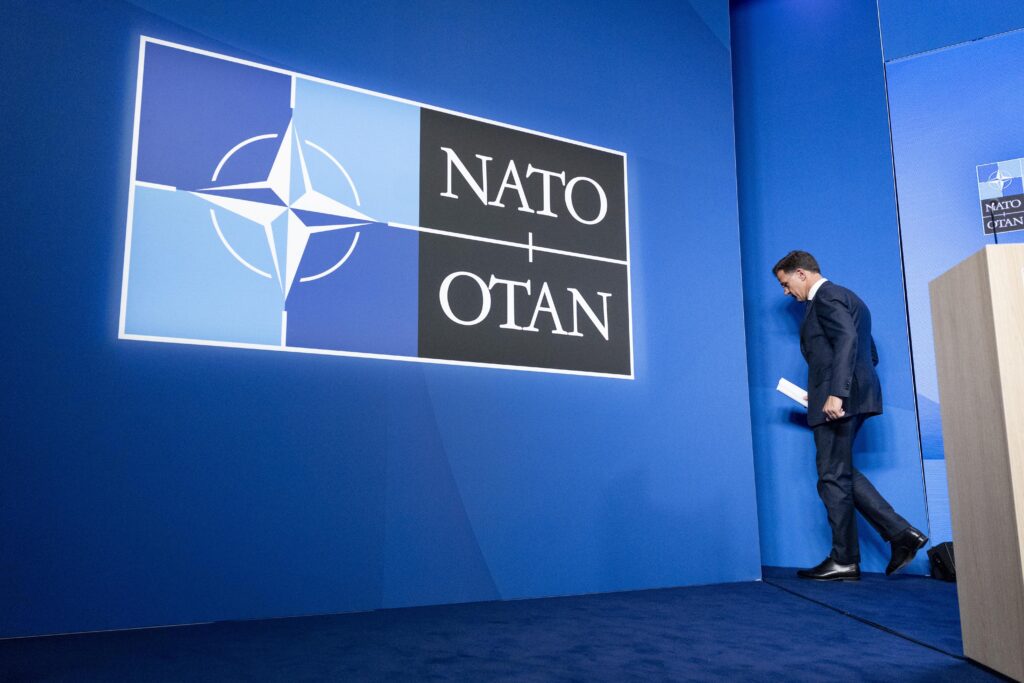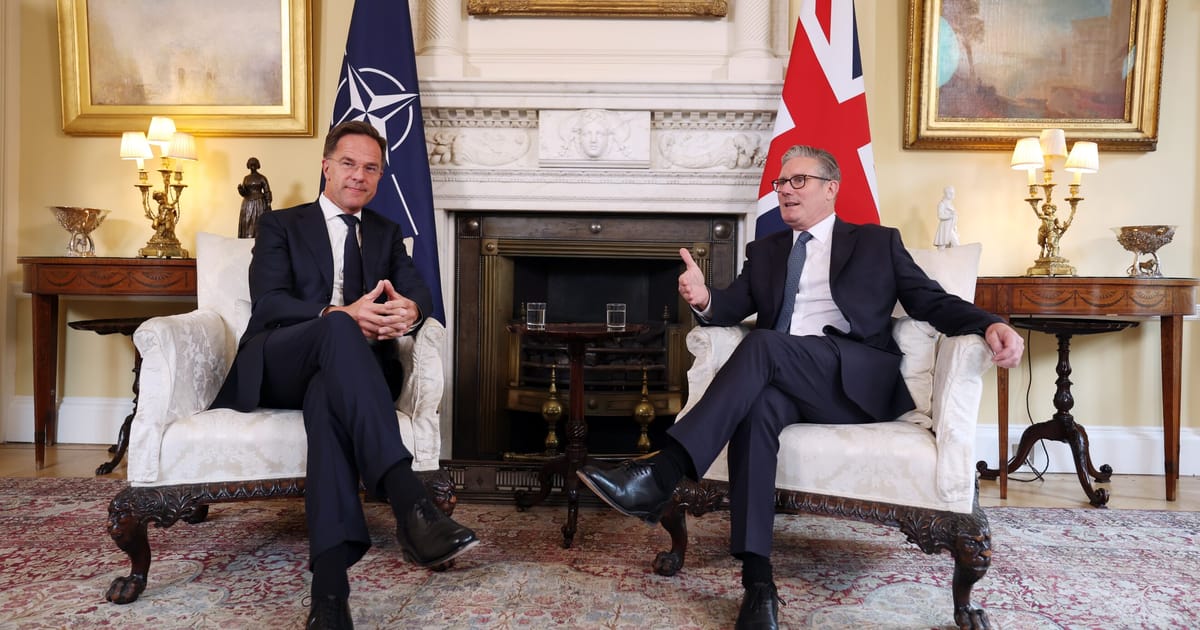He previously vowed to spend 2.6 percent of the country’s economic output on defense by 2027-2028 by slashing the U.K.’s overseas aid budget and including intelligence spending in the sums for the first time.
Until now, the U.K. government has only spoken of an “ambition” to spend 3 percent on defense at some point during the next parliament.
The higher figure of 5 percent will consist of a 3.5 percent boost for core defense costs while an additional 1.5 percent will be spent on resilience and security, according to government officials.
‘National interest’
The national security strategy brings together several strands of work commissioned by Starmer on entering government, including the Strategic Defense Review and the China audit.
 The U.K. prime minister will join allies for the NATO summit in the Netherlands on Tuesday as European leaders urge the U.S. and Iran to de-escalate and renew diplomatic efforts. | Remko De Waal/EPA
The U.K. prime minister will join allies for the NATO summit in the Netherlands on Tuesday as European leaders urge the U.S. and Iran to de-escalate and renew diplomatic efforts. | Remko De Waal/EPA
It is expected to say that attaining energy security and tackling smuggling gangs are key to national security, while prioritizing the threat from “gray zone” attacks on cyber networks and critical infrastructure.
“We must navigate this era of radical uncertainty with agility, speed and a clear-eyed sense of the national interest to deliver security for working people and keep them safe,” Starmer said.
The U.K. prime minister will join allies for the NATO summit in the Netherlands on Tuesday as European leaders urge the U.S. and Iran to de-escalate and renew diplomatic efforts.
